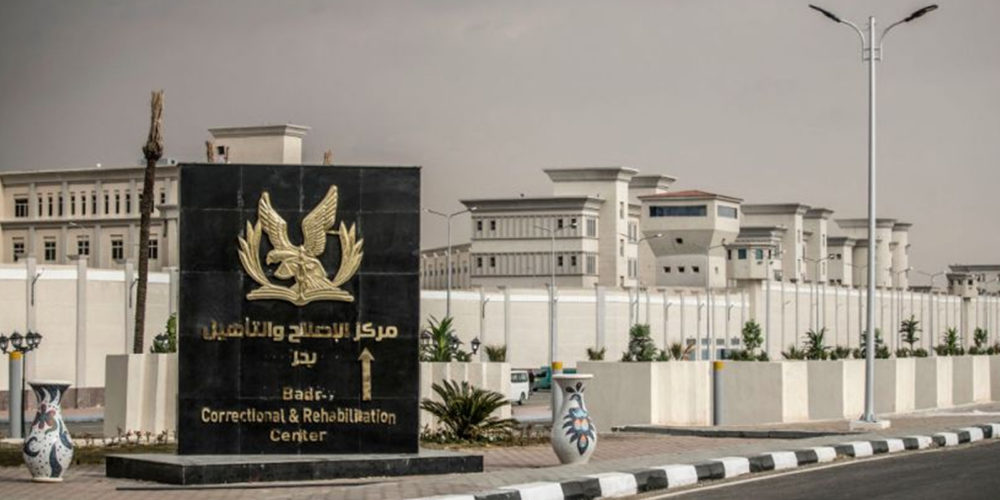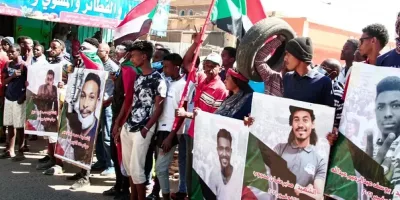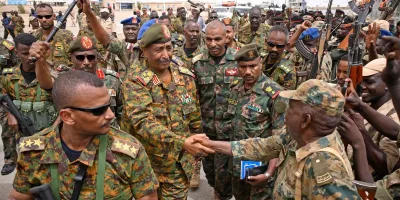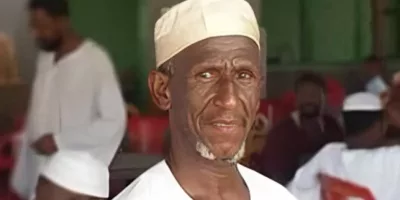The Egyptian authorities must immediately release Badr Mohamed, who was unjustly convicted in January 2023 in connection to protests and sentenced to five years in prison after a grossly unfair trial, said the undersigned civil society organizations.
Badr Mohamed was first arrested on 16 August 2013, when he was just 17 years old, during the Ramsis Square protests in Cairo; where security forces used unlawful lethal force to disperse protesters leading to at least 97 deaths. While he was released on bail after three months, he was later convicted and sentenced to five years’ imprisonment in absentia in August 2017 in connection to the Ramsis Square protests on charges of participation in an illegal gathering and engaging in violence. He was re-arrested in May 2020, and retried on the same charges.
On 12 January 2023, Badr Mohamed was convicted and sentenced to five years in prison following grossly unfair retrial in front of a terrorism circuit of the Cairo Criminal Court. He was denied the rights to adequate defence, to equality of arms, and to cross-examine witnesses against him and to call witnesses on his behalf. During the trial hearings, Badr Mohamed was kept inside a glass cage where he could not fully observe, hear, or speak during proceedings. He was banned from communicating with his lawyer privately through the pre-trial and trial phases.
Badr Mohamed missed the birth of his daughter Amina who has turned three on 16 January 2024. In a letter written to his daughter from prison in July 2022, he expresses his frustration at not being able to watch her grow: “Mama…Baba (father in Arabic), how beautiful are these words. How sweet is your smile Amina, and how hard it is for your Baba to watch you grow out of a cage! How hard it is, and for how long my heart can take it? The few minutes we spend together are so short my daughter, and every time you say goodbye, I feel like something so special is stolen from me”.
Badr Mohamed is detained in Badr 1 prison, known for its cruel and inhumane detention conditions which violate international law. He is only allowed short family visits once a month which is far from enough to spend time with his daughter. Prison guards often deny or delay written correspondence between him and his loved ones and ban any phone calls. He is held in a small, poorly ventilated cell, which lacks any natural light, together with another 20 detainees. Prisoners are subjected to camera surveillance and fluorescent lights round the clock, which causes severe pain and suffering and violates the absolute prohibition of torture and other ill-treatment. Badr Mohamed also complained about the failure of prison authorities to provide him and other prisoners with sufficient and nutritious food and potable water. Prison authorities also ban books, paper, pens, and climate appropriate clothes, with prisoners complaining of bitter cold in the winter months. These prison conditions have had a detrimental impact on his physical and mental health with his family reporting that he lost significant weight since his detention. Badr Mohamed has also complained about his vision worsening, toothaches, and inability to sleep. Despite this, he has not had access to any healthcare.
Badr Mohamed was first sentenced to five years in prison in August 2017 in absentia on charges of murder of police officers, attempted murder, “destroying public property”, “protesting without authorization”, “attacking the security forces” and “hindering the work of national institutions”, during the Ramsis Square protests of 16 August 2013. He was tried in a grossly unfair mass trial that included 494 defendants, 43 of whom were sentenced to life imprisonment, while 399 were sentenced to between five and 15 years in prison, including eight children. The verdict, examined by Amnesty International, heavily relied on investigations and eyewitness accounts by security forces and other government officials.
After his rearrest in May 2020, he was referred to retrial, as per Egyptian law, before a terrorism circuit of the Cairo Criminal Court in July 2020. Similarly, to the original verdict issued in August 2017, the presiding judge in the retrial relied on secret reports by security forces, to which defendants and their lawyers were denied access, including supposed witness testimonies from police and other security or government officials. Lawyers raised concerns that no material evidence was presented in relation to Badr Mohamed’s alleged participation in protests or violent acts. Amnesty International learned from Badr Mohamed’s lawyers that the court dismissed statements by defence witnesses that he did not take part in the protests. Badr Mohamed has repeatedly maintained that he was in the vicinity of Ramsis Square when violence erupted, and that he ran to the nearby Al-Fath mosque for safety. The security forces then raided the mosque, where tens of protesters and bystanders were trapped, including many who were injured, and arrested Badr and many others.
Badr Mohamed’s trial and retrial took place before dedicated judicial chambers, named terrorism circuits, established in 2014 to try individuals involved in anti-government protests. These chambers have sentenced hundreds of individuals to death, life imprisonment and prolonged prison terms after grossly unfair mass trials. The establishment of these chambers was one of the measures taken by the Egyptian authorities since 2013 to undermine the independence of the judiciary, in effect transforming courts into tools of repression against actual or perceived critics of the government.
Badr Mohamed is among the thousands of individuals arbitrarily detained in Egypt solely for exercising their human rights or following proceedings violating fair trial rights or without legal basis. Those held include human rights defenders, political activists, members of opposition parties, trade unionists, workers, peaceful protesters, journalists, lawyers, social media influencers, members of religious minorities, and medical professionals.
Signatories:
- Amnesty International
- Association for Freedom of Thought and Expression (AFTE)
- CIVICUS
- Committee For Justice (CFJ)
- Egyptian Front for Human Rights (EFHR)
- Egyptian Human Rights Forum (EHRF)
- Egyptian Initiative for Personal Rights (EIPR)
- EgyptWide For Human Rights
- HuMENA for Human Rights and Civic Engagement
- International Federation for Human Rights (FIDH)
- International Service for Human Rights (ISHR)
- Middle East Democracy Center (MEDC)






